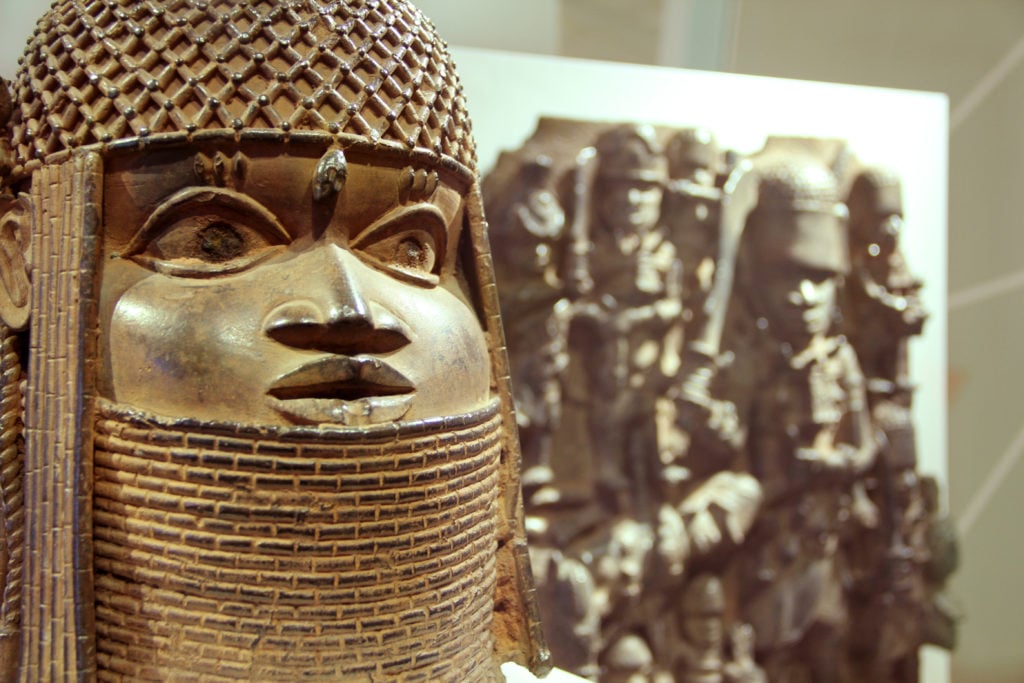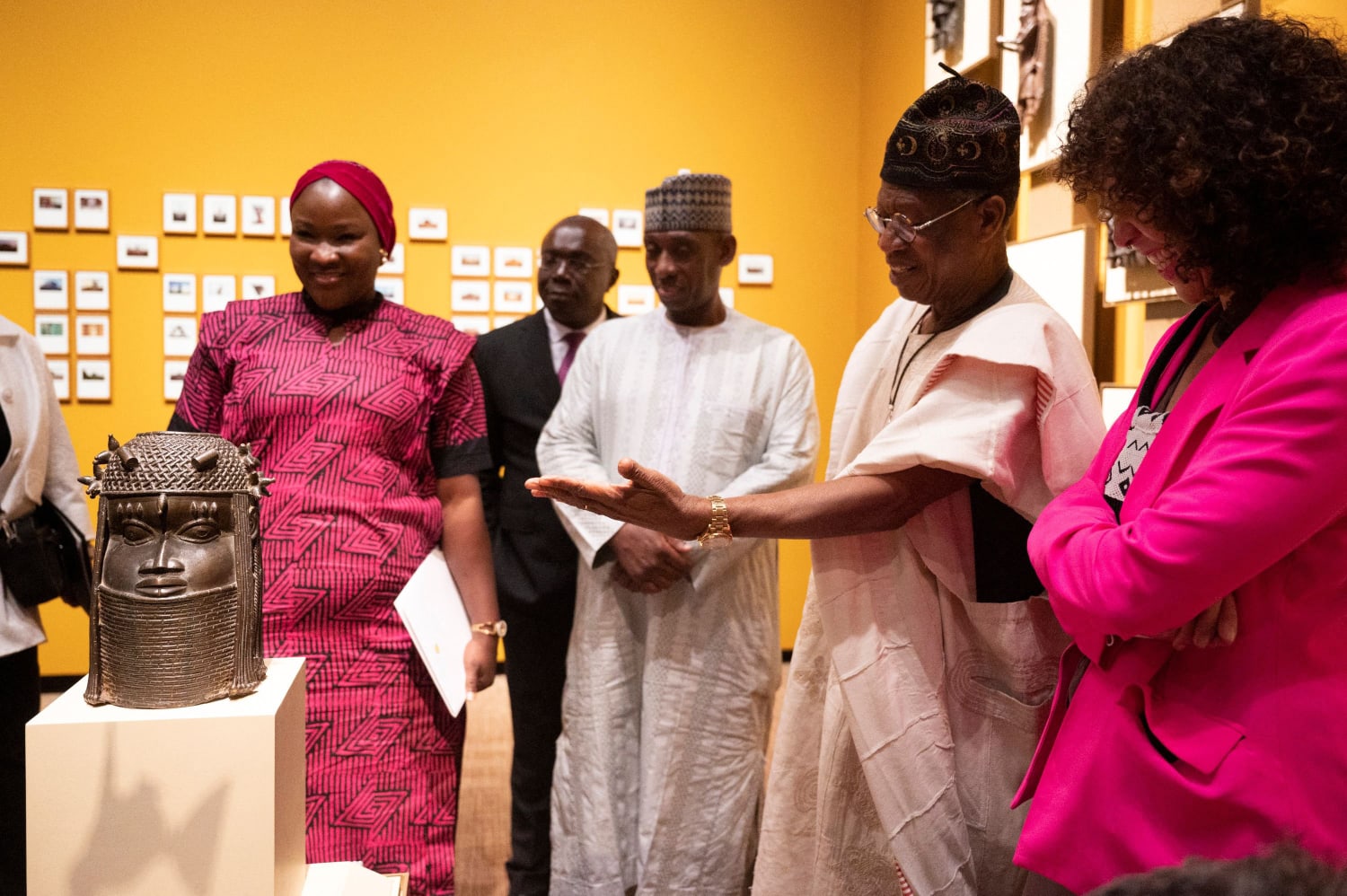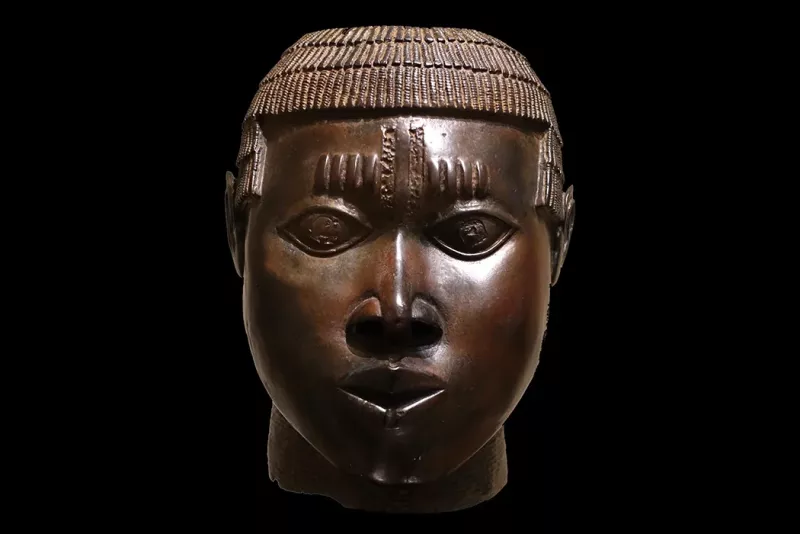During my visit to Nigeria's economic capital, Lagos, late last year, I took the time to visit the country's museum, and I'm glad I did. Not because of what I can see there but, somewhat confusingly, because of what I don't see there. Nigeria is the largest country in Africa in terms of population and boasts as rich a cultural past as one would expect for a country of its size. And it is the modesty of the building and the museum that helps to explain the recent global debate going on about the restitution, ownership, and preservation of many looted artifacts. he was the head of Great Britain as well as others in the past. 100 years. -Other years. Like a campaign and Nigeria and Nigeria other countries in Africa and the Europeans pay at museums in the United States, he has grown up, he inspires it. Some people now say that Africans do not carefully and carelessly by the correct force of their heritage due to legal corruption or negative action. A visit to Nigeria's first public museum provides an insight into the problem of corruption. Judging from the presentation, this company was founded in 1957 and the shoe budget, when Nigeria was still under colonial rule, did not seem very ambitious. Part of that would seem to be due to inadequate funding in a country that has faced major development challenges in the six-plus decades since independence from Britain. But another part of the problem - not least, according to many Nigerians I spoke to during my stay - has been disappearing for decades, and precious things are disappearing. and the collection of the nation went into the hands of the people. As someone who has been interested in African art all his life, both in terms of content and standards of display and preservation, I have seen other interesting collections of works from Nigeria and other continents many times over the years.
For some opponents of reparations, these have become reasons to reject the growing call for rich countries to return what was stolen and confiscated in the past. The argument is that Africans exclude themselves because they do not know how to take care of things and by being kept in rich companies abroad, at least they will preserve the wonders of African culture in the past. , to enjoy. This debate surprised me on several counts. Why, for example, should Africans go abroad to see their own cultural products? One could spend the rest of the column exploring the problems with making Westerners the custodians of African antiquity, but I will limit myself here to just one point among many: this way will mean that only a small fraction of the rich. The continent of Africa can see the magnificent glory of their ancestors. As these and other objections exist, I have a bigger problem with those in the anti-reparations camp who have fueled this ongoing fight by saying, for example, that because the kingdom of Benin, which is now in the south of Nigeria, when they participated in the slave trade and human sacrifice involving captives, the traditional rulers who came from that kingdom should be expelled to get compensation it's been today. In the unknown, the art of Benin, especially the so-called bronzes (actually it is gold), is one of the most famous works in the whole continent. Great Britain confiscated it from Nigeria in 1897 when the capital Benin was taken away. Earlier this year, Nigeria's most recent president, Muhammadu Buhari, chose to return the authority of all that was returned to Nigeria to the current Oba of Benin - the traditional king of the Bini people of Benin in Nigeria - in a situation where public exhibition. To understand the serious flaw in the disenfranchisement argument, you have to go back in time to another important event that happened recently, the expulsion of Benin. At the Berlin Conference of 1884-1885, the imperialist countries of Europe decided on a plan to carve up the African continent and divide its vast territory - rich in minerals, labor, and trade - into cities.

The Europeans did not publicly declare their commitment to the whole continent based on the best against the law, which is really the case, but they want to cover their power play for the sake of humanity. They said they were taking over Africa, in fact, to save Africans from themselves, and called for the need to improve "the welfare of the natives". Here, the desire to educate people is called ignorance. In some ways, huge resources are being extracted from the continent, Africans are being forced to work for the benefit of Europe and large numbers of Africans are being mobilized in the war and the armed forces are working in Europe's two world wars, so-called humanitarian concerns. are pushed to the background or completely forgotten. This can be seen clearly when it comes to education. As I wrote in my recent book, Born in Blackness: Africa, Africans, and the Making of the Modern World, 1471 to World War II, during that time the wave of independence from Europe passed and Africa region in 1960,. of Sub-Saharan Africa has only 8,000 high school graduates. This is more of a contradiction of European concern for the continent than proof of its sincerity or authenticity. The desire of Europeans to be respected for their goodness in Africa actually has an ancient and dark history. As I wrote in my book, during the first century of the slave trade, putting Africans on wooden ships to work to death in the New World trees was given the right ideological approval in a matter of human welfare first. The Europeans saved the souls of these "bad guys" by sprinkling them with holy water as they climbed the tree.

As it seems that their souls were protected from eternal guilt, even as they were sentenced to death in a cruel and deadly peasant camp. So, back to the argument that because the Benin government used to greedily participate in this slave trade, they were shamed into keeping the famous fruits of their culture. When Blackness was born in Germany recently, I received many requests for a television program to discuss the future of African art in the hands of Europeans due to the heated opposition in the country. Recently, I received an angry letter from some quarters in Britain making a similar argument: that Benin has isolated itself because of its own actions in the past. These authors would like to believe that because Britain soon began to fight the human trade from West Africa by supporting the anti-slavery navy there at the beginning of the century 19 years old, he is a good person about this bad news. In other words, the British are acting against the Benin authorities - who they say would not have continued this trade forever if it were not for the good London companies. What they don't think about unconsciously, intentionally, or unintentionally, is that Britain, along with other European powers, deliberately spread war for the purpose of human trafficking in West Africa. West for centuries to meet their need for slave labor. in West Africa. These are the growing regions of the Americas.

This is where their great wealth in sugar and sugarcane later came from, as well as many other small but still important crops. These also helped place Western Europe and eventually the United States at the forefront of the world's economic powers during this period. Isn't the moral imperfection in these arguments obvious? Isn't it inconsistent? For some, obviously not. When they finally wanted, the Europeans stopped the slave trade, and in a small way, even helped stop it in Africa. Therefore, they should not be blamed for removing millions of people from the continent for centuries, condemning Africans to the worst kind of exploitation and death, it is said. That European greed created these markets is not the most important thing, we should believe. They eventually changed paths.

However, the Africans - as in the case of Benin, we are told - are thought to have continued to corrupt practices so much that they cannot even claim their own cultural products. Power, again, places itself behind behavior as it seeks to improve by determining the end to be considered good. Also, how can we go back in time to make some worthy of respectability and eliminate others? What kind of bad behavior deserves the highest attention? What is an unreachable performance? It seems that the Westerners who want to take away the kingdom of Benin from the grip of its heritage have not thought about it much or enough. Who should respect Germany today, less than a century after the Holocaust? What about the United States, which, like the Hollywood blockbuster of the time, Oppenheimer, reminds us - while protecting us from exposure to horrible images - dropped atomic bombs on Japanese cities, setting them on fire for a moment? Isn't that a form of human sacrifice? What about Joseph Stalin and Mao Zedong, who killed their own people by the tens of millions? Why should any of these countries be considered today? Why are we not sure that not only the historical rulers of the past but also the generations that followed? Why was the human sacrifice of the Benin kings exiled for a long time to justify the protection of his art? It may be because Germany, the United States, Russia, and China are big, rich, and powerful countries in Benin, which the Europeans refused to allow them to establish a country in spite of centuries of incredible freedom and great traditional production, is not. If people in the rich world are concerned about the safety and quality of African art, how about doing something very different from what Westerners have done to Africans in the past? This can start, for example, by helping to support museums like the one I visited in Lagos, as well as providing training for curators and other conservation and restoration experts and even law enforcement agencies specializing in the fight against theft and trafficking. Just one thought.




